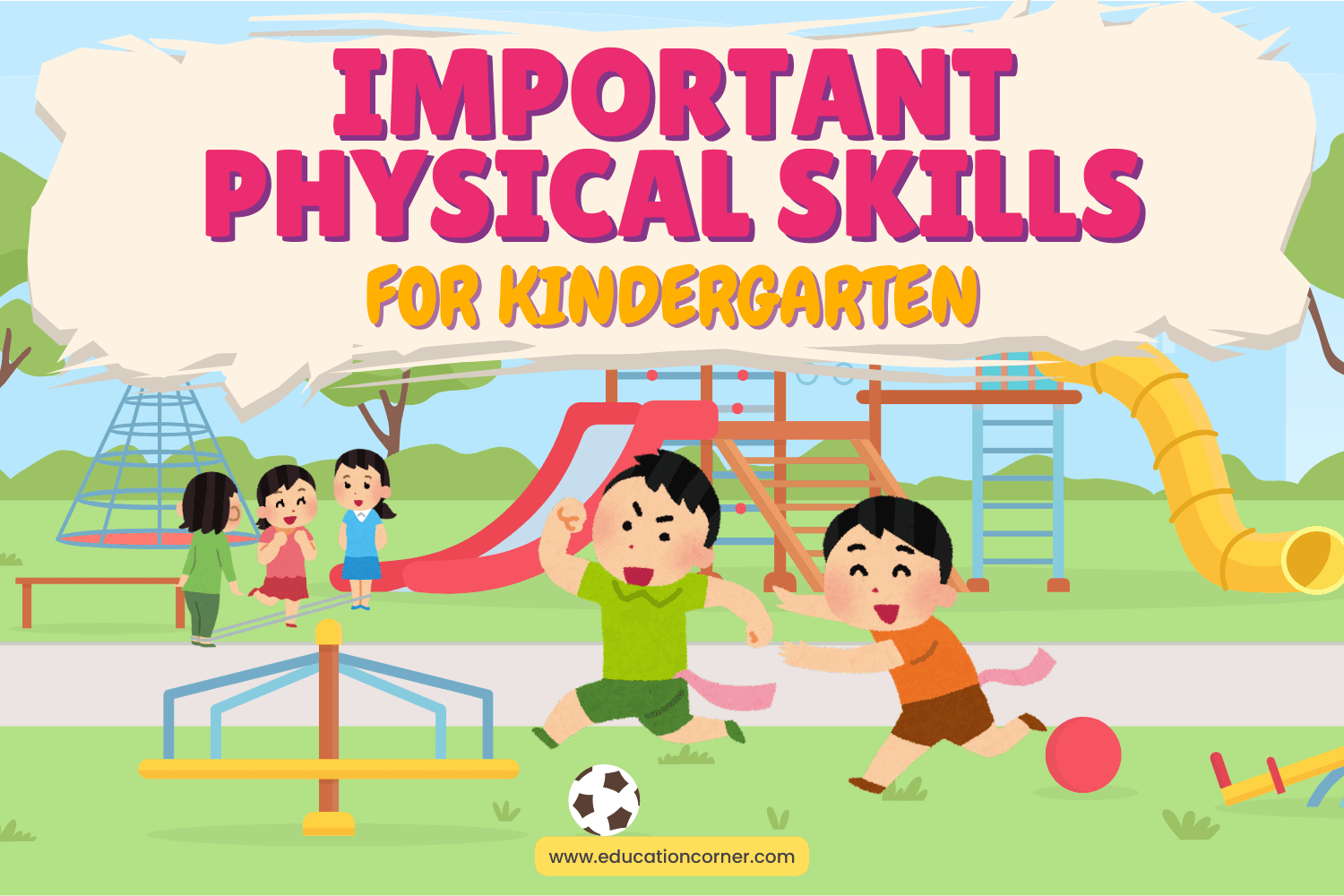Kindergarten is a time of drastic change for children. They’re developing a wide range of new skills at a rapid rate. They’re learning new things and embracing new ideas, and they’re learning how to behave themselves appropriately and to effectively communicate their needs and feelings.
Every bit as important, they’re developing new physical skills, and can use their own bodies with a degree of mastery and control beyond what they’ve experienced before. There are a few physical skills that are particularly important for a successful year in kindergarten.
The 5 Most Important Physical Skills for Kindergarten-Aged Children
1) Establishing either right- or left-dominance
In other words, your child should be showing a clear preference for using either the right side or the left side of his body. Distinguishing hand dominance is the first step towards writing correctly and legibly, as well as performing other fine motor tasks such as using scissors or small manipulatives. It will also help him with P.E. and playtime activities, such as throwing, catching, and kicking.
2) Controlling breathing
To be able to control your own breathing means you can, at will, choose to take a slow, deep breath or a fast, shallow breath, or even hold your breath for a time. This requires a degree of muscle strength, coordination, and presence of mind.
This skill is important because, as your child experiences the many challenges and stresses of school life, being able to control his own breathing will allow him to calm himself down and relax during periods of tension and frustration.
3) Flexibility, dexterity, and strength in fine motor muscles
The fine motor muscles are small muscle groups in the hands and fingers. Developing flexibility, dexterity, and strength in these muscles will allow your child to take care of himself in a number of important ways, such as using the bathroom and buttoning up his own pants. He’ll also be able to tie his own shoes, zip up his coat, and other such self-help skills. This skill is the precursor for total self-help and independence.
4) Climbing stairs using alternating feet, hopping on one foot, skipping, and jumping.
These skills are all components of developing core strength and balance. Core strength and balance are important because they give children the ability to sit in a chair for long periods of time without distress. Furthermore, core strength will help your child succeed in physical education class, as well as on the playground at recess.
5) Moving in many different ways, and mimicking motions
By kindergarten, your child will be expected to move in a variety of patterns and directions (such as walking backwards, sideways, and in a zig-zag pattern) during physical education class and in other situations.
It is very common for kindergarten teachers to use songs, dances, and skits as teaching tools. Being able to mimic the movements of these activities will help your child thrive and progress throughout their year in kindergarten.
Learn more about Kindergarten Readiness

